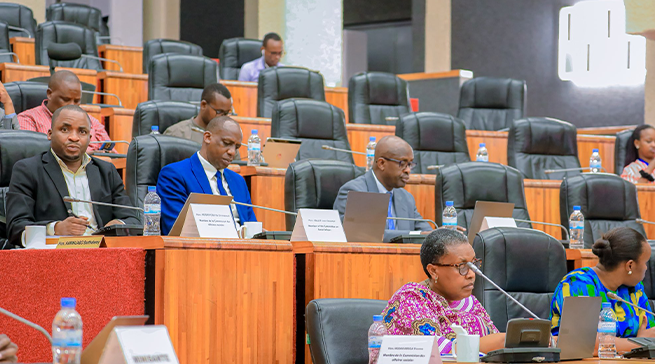Rwandan Parliament Sparks Discussions Surrogacy and Sperm Donation in New Health Bill
2 min read
Rwandan lawmakers are discussing a new Health Services Bill that has been the subject of nationwide debate, particularly for its liberal—but controversial—provisions on sperm donation and surrogacy. The bill, aiming to regulate assisted reproductive technologies, is being interpreted by many as a major step towards the modernization of Rwanda‘s healthcare sector, but some caution against the possible ethical and cultural implications.
Central to the proposed bill is the state legalisation of surrogacy, where a woman carries and gives birth for another. The bill also proposes the regulation of sperm donation, including requirements and use. These are common practices in much of the world but their potential incorporation into Rwanda‘s health system have caused intense debate both within Parliament and beyond.
Of key interest to lawmakers is protecting the identity and rights of children born through such avenues. Various MPs questioned whether the bill adequately addresses the right of a child to have access to information about their origin—a matter which has been regarded as paramount to the psychological well-being and legal definition of such children.
MP Mukarusagara Eliane made a move to balance matters, calling for record-keeping to be prioritized without having to necessarily violate donors’ anonymity.
“Even if the physical identity of the donor is unknown, his/her name should be registered where gametes are stored. This would enable civil registration and the child will become legally identifiable as the child of a specific individual,” she suggested in the parliament session.
Outside the parliamentary chamber, civil society organizations have also entered the fray. Bérnard, a Strive Foundation delegate, was concerned about the psychological impact on children born through anonymous sperm donation.
If a person can simply go into a lab, donate sperm, and leave without leaving any record, the resulting child can subsequently develop depression because they know nothing about their father,” he said to legislators, urging them to consider the long-term emotional effects.
While others praise the bill as a progressive step toward reproductive freedom and medical progress, others call for caution, emphasizing respect for cultural values and family structures.
The bill awaits review as Parliament still engages stakeholders, including health practitioners, religious leaders, and civil society groups. The outcome of these consultations will shape the future of reproductive rights and healthcare ethics in Rwanda, making this one of the most eagerly awaited legislative events in recent times.





